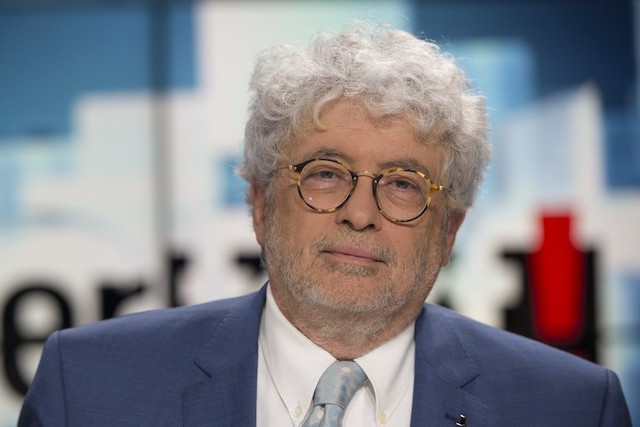What are the major lessons from this report?
Gilbert Pregno: The CCDH has two missions: to promote human rights and to advise the government. During the pandemic, we have written 13 opinions. And if I have done my math right, only three recommendations were taken up by parliament and the government. Including the question of the closure of cultural venues and the situation of the homeless during curfew.
There was a sort of resistance to the advice given. The government was caught in an understandable push to move forward and was not that interested in challenging the bills. Nor was parliament, by the way. The speed with which laws are passed is problematic. This does not allow for questions to be discussed in-depth. There were many inaccuracies in the texts tabled. This also leads to legal uncertainty. I’m not blaming them, it’s just an observation. I can understand things need to go fast. But this contributes to creating a very fragile context with regard to respect for human rights.
In any case, we have decided that for every bill that will be tabled from now on and where there is a human rights issue, we will analyse it taking into account the impact of the pandemic. We can no longer act as if nothing has happened.
When the pandemic started, we made two assumptions. The first was that the people most discriminated against in our society would be those who would bear the heaviest burden. That is to say the elderly, women, refugees, children, adolescents, people with disabilities... And it has been true. The second hypothesis was that once the health crisis was over, we could go back to square one. And that will not be true: this health crisis will create a lot of damage and will impact, in the medium and long term, many areas of our life. At the economic level, but also at the level of living together and injustices.
Already, we can see that the consequences will be serious. In the health sector, the psychological component has been totally neglected. We also see a trivialisation of the fact that the elderly died in high numbers. Elderly people who have been put in an unbearable situation of isolation.
I wonder what kind of society we are moving towards and how we are going to be able to repair all the damage caused.
What do you think needs to change in the government’s approach and in the measures taken?
For us, the line of analysis was always to have a justification, or an explanation, or a scientific hypothesis based on experience which made it possible to judge the relevance of a particular measure. On this point, we remained unsatisfied. The curfew, for example, what was it used for? What about the choice of the number of people you can accommodate in your home? It varied from country to country...
Do you think that this health crisis will leave traces in the long term in terms of human rights?
In the short term, the important thing is to contain the virus, to ensure that it is combated. And I think it's the vaccination that will bring the situation under control, which should happen over the summer.
The most important thing, afterwards, will be to rediscover solidarity, living together, sorority and fraternity. This is a concern that we all have at the CCDH: not only to remain in a logic of fighting against the virus, but also to ensure living together. I believe there will need to be a refocusing on important values that make it possible for us to live together.
We very quickly got used to measures that violated human rights, but which were justified because the issue at stake was the health of the community. The fact that we got used to this certainly also influenced our perception of what freedom is. I'm not sure what's going to happen. I just have the hope that after this whole crisis there will be some kind of new routine that will have to take hold, that will allow each and every one of us to find that space that they need to live well.
In recent years, our societies have become more and more individualised. Are we witnessing a swing back towards the collective?
What I have seen is that there are people who have not respected the constraints that have been imposed. And there are others, too, who went beyond these constraints, certainly because they were afraid. For me, a lot of people have stayed in this individualistic perspective, that is on what they think, when what we need is a kind of solidarity.
I read somewhere that if everyone took responsibility for their own actions in this pandemic, we would need fewer hard laws. We need binding laws because people are not in this attitude of accountability.
At the start of the pandemic, I sent a letter to Xavier Bettel (DP) in which I said that there would be more solidarity when the crisis was over. I have doubts about that now. What I realise, going on social networks and in the press, is that there is a kind of scattering of positions. We are not in a logic of sticking together and moving forward but, for some people, it’s every man for himself and whatever happens, happens. It is the role of the government, the parliament and the CCDH to create the necessary glue to keep all the pieces together and prevent the development of unsurmountable divisions.
This interview was first published in French on paperjam.lu and has been translated and edited for Delano.
